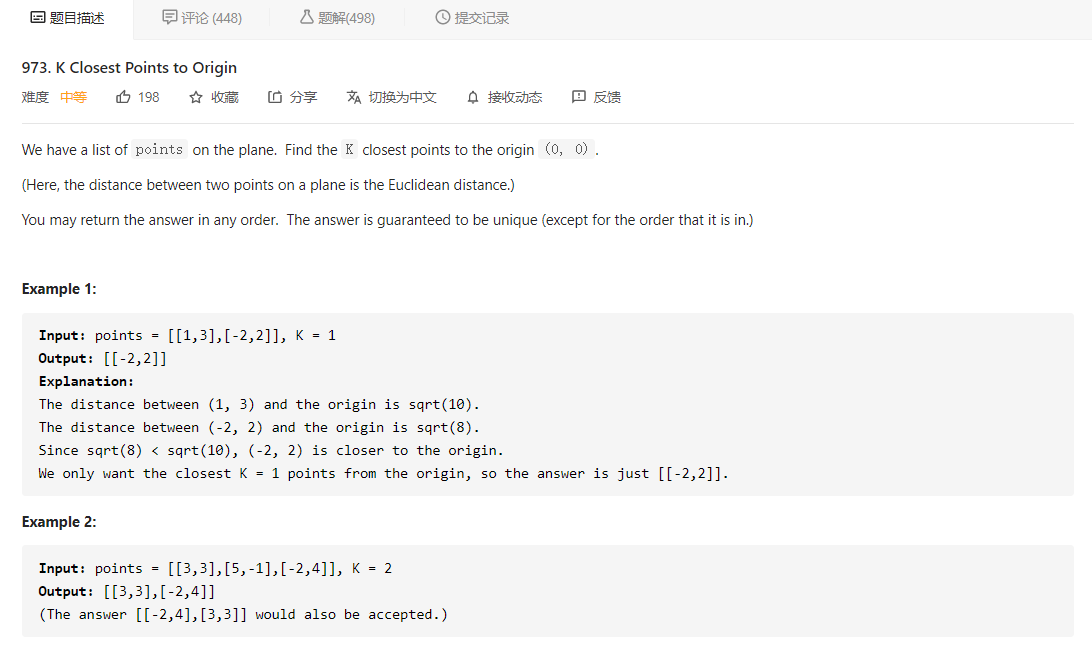LeetCode每日一题,973. K Closet Points to Origin
先看题目描述
大意就是给定平面上的点组成的列表,再给定一个整数 K,让我们从中找出 K 个距离原点最近的点
算法和思路
排序
大致思路就是调用 Arrays.sort() 函数,并用 new Comparator() 重写排序规则,使元素按照距离原点的距离升序排列,然后复制排序后数组的前 K 个元素并返回
优先级队列
构造一个优先级队列实时维护前 K 个最小距离的平方,在构造时用 new Comparator() 重写排序规则,使其为一个大根堆,其中元素按照距离原点距离的平方降序排列;我们将前 K 个点的编号(为了方便最后直接得到答案)以及对应的距离平方放入优先队列中,随后从第 K+1 个点开始遍历:如果当前点的距离平方比堆顶的点的距离平方要小,就把堆顶的点弹出,再插入当前的点。当遍历完成后,所有在优先队列中的点就是前 K 个距离最小的点
借助快速排序
这个实际上就是借助快排中的 partition 过程,partition 操作会将数组中的一个元素放在它最后该处于的位置上,满足其左边的元素均小于等于它,其右边的元素均大于它,若经 partition 操作后,该元素恰好处于位置 K,那么我们直接复制此时数组的前 K 个元素并返回;若在位置 K 左边,则对其右侧数组元素进行 partition 操作;若在位置 K 右边,则对其左侧数组元素继续进行 partiton 操作,直至经 partition 操作后某个元素处于位置 K
算法源码
排序
1 | import java.util.*; |
优先级队列
1 | import java.util.*; |
借助快速排序的partition过程
1 | import java.util.*; |
